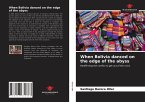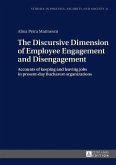Alongside the whole legal arsenal and despite the laws and regulations, we hear speeches; we see symbols and practices that are increasingly attracting the attention of the researcher. This study focuses on the use of religious mechanisms by public administration employees to safeguard, secure and preserve their jobs. In the end, public administrative structures are never what they seem or pretend to be. They must be considered on at least two levels: one superficial, presenting the 'official' structures, and the other deeper, allowing access both to the more fundamental real relationships and to the practices that reveal the dynamics of the surrounding social system. What can we learn from this research? "Man is not good, it is society that corrupts him". If recourse to religious mechanisms to secure employment was corruption, this is induced by the family sphere, social representations, job insecurity and politicisation, favouritism, malice, sabotage and their corollaries, which are commonplace in Benin's public administration.








